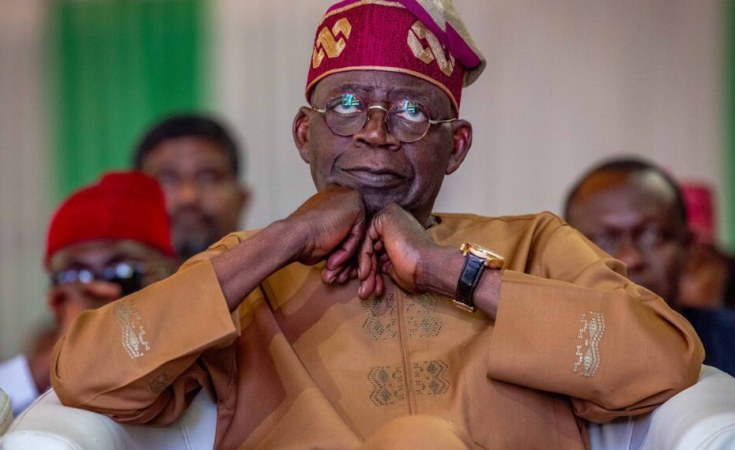The seven-member panel of the Supreme Court unanimously dismissed the appeal after resolving all seven raised by Atiku in favour of Mr Tinubu.
The Supreme Court has dismissed the appeal filed by the presidential candidate of the Peoples Democratic Party (PDP), Atiku Abubakar, to challenge President Bola Tinubu's election.
The judgemet, delivered Thursday, laid to rest Atiku's ferocious legal battle which stretched to the United States to overturn Mr Tinubu's victory at the 25 February election.
The seven-member panel of the court unanimously dismissed the appeal after resolving all seven issues raised by the appellant in favour of Mr Tinubu.
The presiding justice of the panel, Inyang Okoro, who read the lead judgement, struck down the allegation by Atiku that failure to promptly upload the polling unit results of the election to IReV amounted to non-compliance with the provisions of the Electoral Act, thus, invalidating the election.
The court dismissed this argument, saying IReV was not a result collation platform, therefore failure to upload results onto it could not have invalidated the election.
The court also held that Mr Tinubu's failure to score 25 per cent of the votes in the Federal Capital Territory (FCT) when he had polled 25 per cent votes in 13 states did not affect his victory in the election.
The court also held that Atiku failed to prove his allegation of widespread rigging during the election or that he won the election
"I am unable to find any figures put forward by the appellant that he scored the majority votes, other than the figures declared by INEC declaring the second respondent (Tinubu) winner of the election.
"The votes before us show that the second respondent Tinubu won the election," Justice Okoro said.
On the issue of use of disparaging words by the lower court against the appellant, Mr Okoro said "the words of the court were not meant to disparage the appellant" and did not amount to bias against appellant as argued by their lawyers.
"On the whole, having resolved all the issues against the appellant, I hold that there is no merit in this appeal and it hereby dismissed," Mr Okoro said.
On that basis, he said the judgement of the PEPC delivered on 6 Septemeber, affirming Mr Tinubu as the duly elected President of Nigeria "is hereby affirmed."
The court earlier dismissed the bid by Atiku tender fresh evidence of certificate forgery against President Tinubu.
The fresh evidence was a deposition of the registrar of Chicago State University (CSU) on academic records of Mr Tinubu. Atiku had obtained the document after winning a legal case in a U.S. court which compelled the unviversity to release Mr Tinubu's academic records to Atiku to prove allegation of certificate forgery against Mr Tinubu.
The court held that it lacked the jurisdiction to entertain such evidence that was not tendered before the lower court.
Mr Okoro also said the appellant's lawyers were tardy in their attempt to obtain the evidence and tender it at the lower court.
According to Mr Okoro, as of the time Atiku brought the document, the trial Presidential Election Petition Court had lost jurisdiction to hear Atiku's petition challenging Mr Tinubu's election. He added that the Supreme Court did not have the power to accept and act on the evidence which the lower court did not admit and act on.
Mr Okoro wondered why Atiku sought to tender the fresh evidence when the grounds of his appeal did not raise the issue of certificate forgery against the president.
"The jurisdiction of this court is donated by the Constitution. One wonders what the appellant (Atiku) intends to do when none of his grounds of appeal is hinged on forgery against the second respondent
(Mr Tinubu.)," Mr Okoro held.
The Justice explained that Atiku's attempt to introduce the fresh evidence was aimed at reversing the gains made in speedy adjudication of electoral disputes that had been marred by prolonged hearing.
The court will now deliver judgement on Peter Obi's appeal.


